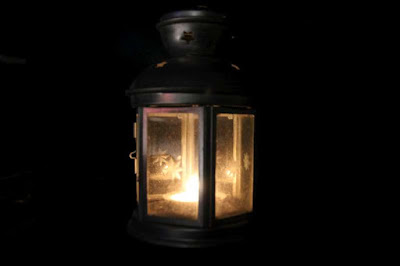One of Laura de Jong’s
“all-time favourite movies” is Princess Bride.
The 1987 film is a
story within a story, de Jong said, with a grandfather reading a story about
pirates and princesses to Fred, his grandson, who is sick in bed. As the story
ends with the good guy dying and the princess marrying the evil prince, Fred
protests.
“Grandpa, you read it
wrong!” he says. “That can’t be how it ends! She can’t marry the prince. She
doesn’t love him. And what about Westley? He can’t be dead!”
De Jong said the movie
scene shows that we all have a pretty good idea of how stories should end. “There
should be triumph, right should conquer wrong, the hero should get the girl. We
know a good ending when we see one.”
De Jong’s final
message during Spiritual Emphasis Week 2016 focused on the final chapter of
Jeremiah, which, like the story in the movie, had a similarly bad ending. The
king is still in captivity, the country is still under foreign occupation and
the people are still exiled.
The last few verses of
Jeremiah 52 end with forgotten King Jehoiachin being released from prison and
dining at the table of the invading king.
“Still an exiled king,
still technically a prisoner. Eating fish and dates and drinking wine with the enemy
until the day he dies,” de Jong said. “If I was an Israelite, this would seem
like an unsatisfactory ending to me.”
After chapters and
chapters of God warning the Israelites of the consequences of their
unfaithfulness, of capture, exile and occupation, and of God’s promise of
restoration, the ending seems anti-climactic and unfinished. And that’s not the
only unsatisfactory story we see. We turn on the news and see stories of
out-of-control wildfires, villages being bombed, racist attacks or children
sold into slavery by their impoverished parents. We look around us and see
cancer, family breakdown, or parents who lose their jobs.
Like the people of God at the end of Jeremiah, we are “still in limbo,” she said.
Like the people of God at the end of Jeremiah, we are “still in limbo,” she said.
De Jong said the story
of Jehoiachin dining at the king’s table is an example of “anamnesis” and “prolepsis”
– Greek words for lived memory (anamnesis) and lived future (prolepsis). A modern
example of anamnesis and prolepsis would be turning up the heat and having an
impromptu Hawaiian party in the dead of winter, complete with barbecued food,
flip flops and dance tunes. The party is both remembering what summer feels
like (anamnesis) and a bold declaration summer will come again (prolepsis).
That’s what is
happening at the end of Jeremiah. The writer is emphasizing that despite his
captivity, Jehoiachin is still the king of Judah and he is still in the lineage
of David – and Jesus.
“And though captive, we see a glimpse of what things were like before – fine clothes, good food and a seat of honour,” she said. Jehoiachin is acting out a memory of the time when God’s people lived in God’s favour.
“And though captive, we see a glimpse of what things were like before – fine clothes, good food and a seat of honour,” she said. Jehoiachin is acting out a memory of the time when God’s people lived in God’s favour.
These verses also
represent an invitation to all of us to live into God’s promise, she said.
Jehoiachin’s dinners at the king’s table are a reminder of God’s promise of
another king, and indeed, Jehoiachin is mentioned in Matthew 1 in the genealogy
of Jesus.
“For the people of
Israel, hope looks like King Jehoiachin eating at the table of the king,” she
said.
For the people of God, in all times and in all places, hope still looks like a table – a communion table or a library table or a classroom table.
“It’s all the places and times we gather together and offer love and courage and hope to each other through our small acts of service and love,” de Jong said. “We are the body of Christ and we remind each other that God is faithful.”
For the people of God, in all times and in all places, hope still looks like a table – a communion table or a library table or a classroom table.
“It’s all the places and times we gather together and offer love and courage and hope to each other through our small acts of service and love,” de Jong said. “We are the body of Christ and we remind each other that God is faithful.”
- We lace up our shoes and we move forward, even when we feel inadequate. (Spiritual Emphasis Week Chapel Day 1: Jeremiah 1.)
- We remind ourselves every day who we are. (SEW Chapel Day 2: Jeremiah 2.)
- We seek the peace and prosperity of our city. (SEW Chapel Day 3: Jeremiah 29.)
- And we do the foolish things of faith that don’t make sense to the rest of the world. (SEW Chapel Day 4: Jeremiah 32.)
“God is faithful, and
the end of the story is a good one,” de Jong said, because God is good and he
loves us. Even when we mess up, run away or yell in anger, God loves us, and
invites us to live in the goodness of his new creation. Even if things are
going wrong, we get to practice the end of the story.
Whenever we, as
Christ-followers, act out the ending and live the goodness, joy, peace and
love of the Kingdom of God, we are showing the world and each other how good it
will be, de Jong said.
“That’s what hope
looks like.”
DeJong said she had a great week at Smithville Christian, and took a selfie with the school.
Spiritual Life Director Gord Park prayed a prayer of thanks and blessing over de Jong as she finishes her studies at Calvin Theological Seminary.
"God's word came through you to us," he said. " You revealed Jesus to us."
Click here to read more about where Laura de Jong's been and where she's going.
A student praise team led in worship with "Love Come Down," "Holy (Wedding Day)," and "I'm Not Ashamed." We are so blessed by the musicians and AV technicians who make worship possible every day during Spiritual Emphasis Week. Join us for chapel every Wednesday morning -- everyone is welcome.DeJong said she had a great week at Smithville Christian, and took a selfie with the school.
Spiritual Life Director Gord Park prayed a prayer of thanks and blessing over de Jong as she finishes her studies at Calvin Theological Seminary.
"God's word came through you to us," he said. " You revealed Jesus to us."
Click here to read more about where Laura de Jong's been and where she's going.
* * *


















































